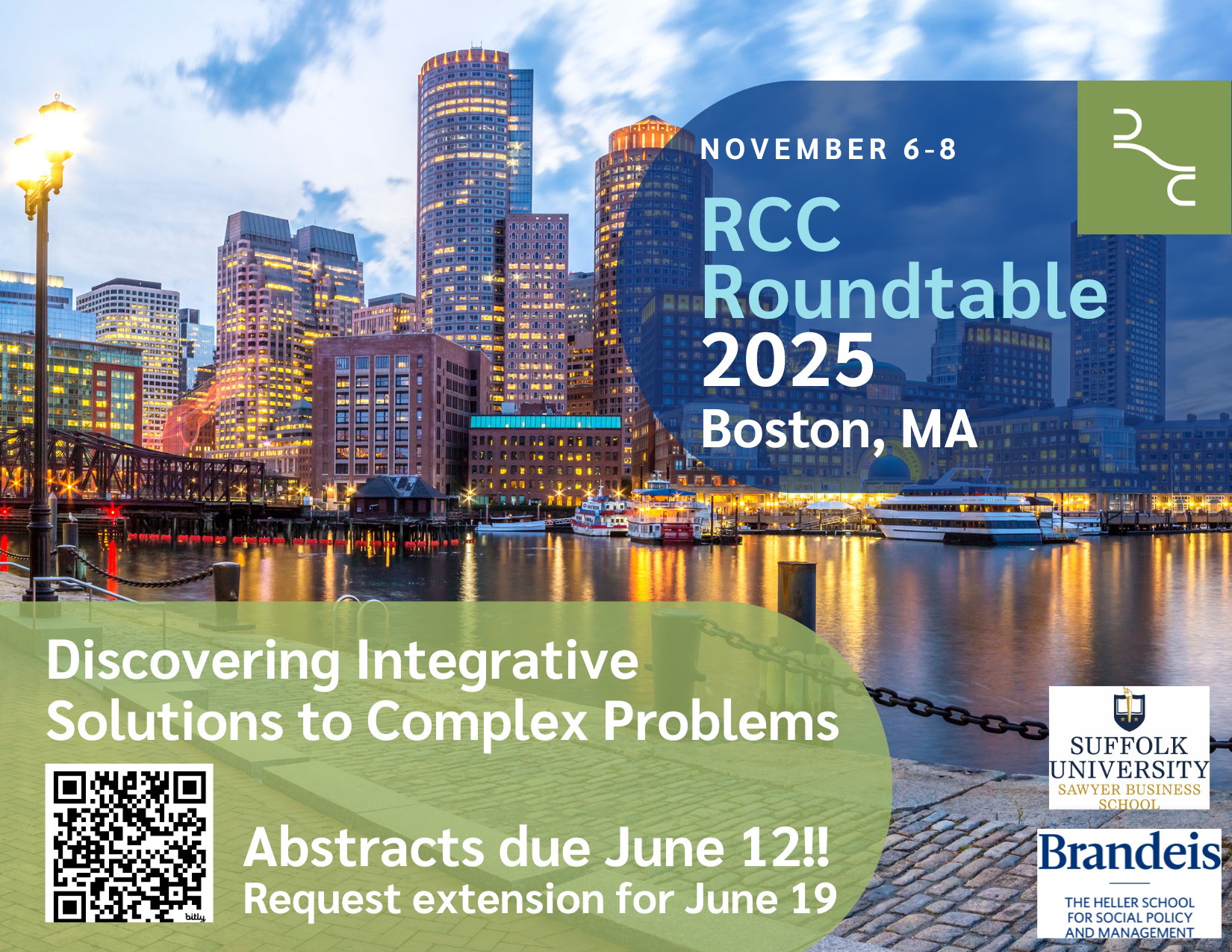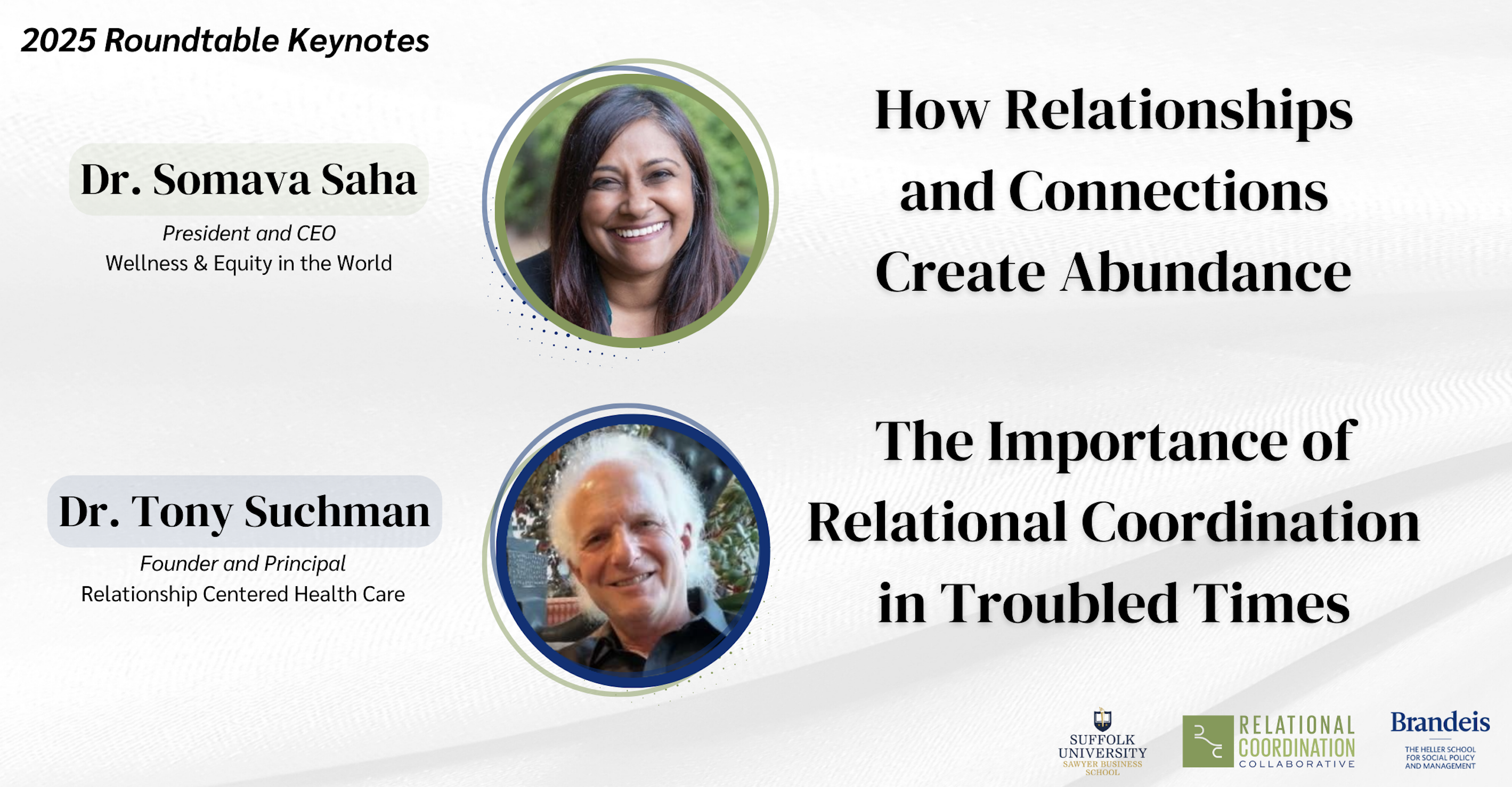



While some leaders seek to divide and conquer, many people are looking for solutions to real problems. How can we move from domination to integration to solve the problems we face, whether in the healthcare, education, environmental, public administration, policy or commercial sectors?
Mary Parker Follett advocated for moving from domination or even compromise toward a third method called integration "where the parties in a conflict work together to create a new idea that is orthogonal to the original axis of conflict" (Wright, 2024).
How can we identify a shared goal to get the process started, then begin to build shared knowledge and mutual respect as we engage in problem solving? How can we do this in our organizations and in our communities?
Join us for the 15th Annual Relational Coordination Collaborative Roundtable hosted at Suffolk University in downtown Boston to:
Save by becoming a member or renewing your membership.
EARLY BIRD (by 10/8) |
STANDARD (after 10/8) |
|
| Regular Member Registration | $350 | $400 |
| Regular Membership | $100 | $100 |
| Regular Non-Member Registration | $450 | $500 |
| Student/Emeritus Member Registration | $275 | $325 |
| Student/Emeritus Membership | $50 | $50 |
| Student/Emeritus Non-Member Registration | $325 | $375 |
| WELCOMING ACTIVITIES! | ||
| Meet with the Celtics Exec Leadership Team (fee is for Sports Museum tour) | $15 | $15 |
| Walk the Boston Freedom Trail! | Bring $ for drinks, nibbles | Bring $ for drinks, nibbles |
| Kayak the Charles River! | $60 | $60 |
|
Group Discount 3-5 people per organization 6+ people per organization |
10% off each registration 20% off each registration |
10% off each registration 20% off each registration |
Virtual attendance is an option this year - same registration rates apply.
You can use the student discount rate OR the group discount rate, but not both.
A limited number of scholarships are available and you may have the opportunity to volunteer in return for your scholarship. Please apply here.